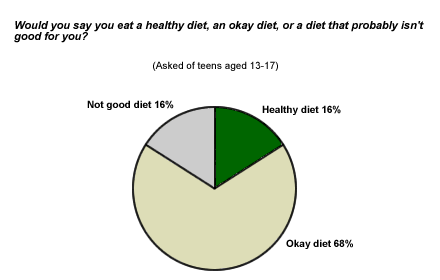
Research suggests that between twenty-three percent and thirty percent of life expectancy are genetic. The rest is a mix of lifestyle and genes. Despite the fact people are living longer, the average lifespan hasn’t changed much over time. There are many things that can affect one's life span. Healthy eating habits and regular exercise are important.
Although genetics research is still in its infancy, it has been shown that increased longevity can be linked to nutritional needs. It was also discovered that 25% of human life span variance is genetic. There are many genes involved in aging. Three genes have been associated with longevity, although they are still not fully understood. These genes are the APOE, FOXO3 and CETP genes. These genes are not known to have an impact on one's life expectancy, but they do interact.

Average Americans live for eighty-eighty years. Asian-Americans, by contrast, average almost one hundred years longer. Black Americans have shorter lifespans and tend to be less healthy. White men also have higher rates for cancer, heart disease, diabetes and heart disease than their black counterparts. However, women tend to live longer than men. There are many theories that explain why women live longer than men, but they all have to do with better health and fewer physical activities.
The determinants of life span may not be genetic, but lifestyle factors play a significant role. Lifestyle factors play a large role in determining a person's life expectancy. These include the environment they live in, what they eat and how active they are in their daily lives. In the first seventy years of life, lifestyle plays a greater role in determining life expectancy than genetics. As they get older, they become more likely to be in good health and to avoid many age-related illnesses.
Lifestyle, genetics and environment can all impact the life span. People with longer life expectancies are healthier than their counterparts. The length of their lives is determined by the environment and lifestyle they live in. In addition, the diet and nutrition of people living in poorer regions can have a direct effect on their longevity. Although these factors are important, it is not always causal. If you want to extend your life, make sure to eat healthy foods. People who eat more fresh fruits and vegetables are also more likely live longer.

Scientists have studied people who live in their nineties and even their nineties. These individuals tend to have the exact same lifestyles. They don’t smoke, aren’t overweight and have no other health issues. But, they are more likely not to smoke. They can also handle stress well. They are also more likely female. It's also important to remember that older adults who are healthy and happy will live longer than their counterparts.
FAQ
How often should you exercise per week?
It depends on how much time you have available and what type of exercise you prefer. You should do moderate-intensity aerobic exercise three to five days per week. You shouldn't do too much. It is crucial to exercise regularly in order to reap the full benefits of your workouts.
Which exercises are best for me?
It really depends on the type of fitness goal you have. Some people focus on endurance activities like running, cycling, and swimming. Others love lifting weights or using resistance bars. There are so many different types of exercise programs available today. Choose an option that suits your lifestyle.
Is it true to say that protein overeating can lead to kidney stones?
Protein is essential for healthy bones and tissue. Consuming too much protein can result is calcium excretion via urine. In turn, this can result in kidney stones.
It is important to remember that not all people get kidney stones from eating more than 2g protein per kilogram (2.2lbs) of body weight. You don't have to eat a lot of protein to get kidney stones.
Your sodium intake can prevent kidney stone formation. Sodium helps regulate water balance in the kidneys. A high level of sodium can increase the risk of developing kidney stone.
You may also want to reduce your protein intake in the event of kidney stones. For most people, protein provides half their daily caloric requirements. A reduction in protein intake will likely result in weight loss.
If you do decide to eat more protein, don't go overboard. You should aim to consume less than 20% of your total calories from protein.
What is the best way to increase muscle mass?
Two main types of exercises are required for building muscle mass. These are called compound movements and isolation. While isolating exercises target specific muscles, compound movements are designed to focus on multiple muscle groups at once.
Your best option to improve your fitness is to work out with exercises that challenge all your major muscle group. This ensures that each session is challenging.
MyFitnessPal, an app that tracks your actions, can be used to help you keep track. It can track everything from calories burnt to weight lifting. You can also make custom meal plans according to your goals.
Statistics
- 10 pounds in a month is likely during a lean bulking phase, especially for beginners. (muscleandstrength.com)
- According to the American Heart Association, blood pressure should be checked at least once every two years, beginning at age 20. (my.clevelandclinic.org)
- By John Thompson Take a whopping 38% off a set of PowerBlock Pros. (menshealth.com)
- An estimated calorie range for moderately active adult males falls between 2,200 to 2,800 calories per day, depending on age. (eatright.org)
- Are You One of the 20% of Guys (mh.co.za)
External Links
How To
How to Eat Well in Men's Food
Eat small meals throughout the day instead of three big ones. Smaller meals will allow you to spend less time eating and digesting food. Later, you'll be less likely overeat.
Avoid snacking prior to bed. Snacking late at night causes you to wake up hungry and overeat the following day.
Take a snack about an hour before you go to bed.
Avoid "snack attacks," where you grab something to eat whenever you feel hungry. This is particularly dangerous if your weight is already high.
Balance your meals. If you skip breakfast, make sure you don't overdo it at lunch and dinner.
If you're having trouble losing weight, cut back on calories.
You can cut out caffeine, alcohol, and nicotine. Both can impact the way your body processes nutrients.
Get enough sleep. Sleep deprivation makes people crave junk food.
Exercise regularly. Exercise improves your mood, boosts energy levels, and burns extra calories.
Take care of yourself mentally. Stress can cause weight gain and overeating.
Relax. Meditation and yoga are great ways to relieve stress and anxiety.
Keep track of all the food you eat. Keep track of everything you eat.
Remember to take supplements! For most men, they don't consume enough vitamins or minerals to be healthy.
Daily multivitamin intake is recommended. A daily multivitamin can prevent deficiencies in certain key vitamins and minerals.
You might consider taking a vitamin-C supplement. Vitamin C helps prevent scurvy and strengthens your immune system.
Your diet should include zinc. Impotence can result from zinc deficiency.
Water is essential. Limit your fluid intake to 1.5 liters daily (about 4 cups).
Limit salt. Sodium raises blood pressure and leads to heart disease.
Avoid trans fats. Trans fat has been shown to be linked with higher rates of obesity, diabetes, heart disease, and other health problems.
Best Male Enhancement Products for 2018 – Best Male Enhancement Tablets Reviews
There are many male enhancement options available. Some products work well while others provide no real results. This article will give you information about the most effective male enhancement pills.